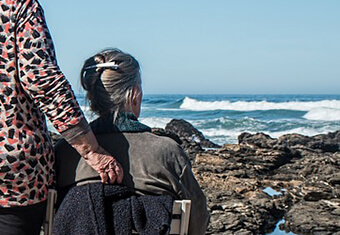The CRA is the federal agency that administers tax laws for most provinces and territories, as well as the Canadian government. The Canadian tax system is based on self-assessment, which means that every corporation and every taxable individual, estate or trust is mandated by law to file an annual income tax return. In order to maintain the self-assessment tax system, the CRA performs detailed and continuous inspections. Such reviews range from “processing reviews” of a single item or line in the tax return, matching of slips filed with CRA to the tax return, to tax audits of one or several amounts of income or expense.
CRA’s reasons for auditing a taxpayer
- Screening Process: CRA performs computer review of filed returns. Tax returns are sorted by various categories, considering unusual items, CRA’s prior experience with certain income or expense items, or industries, and the risk evaluated by CRA of potential tax loss. This review generates lists of returns for potential audit selection. Specific files are chosen for audit regionally. This is the most common method for selecting files to audit.
- Audit Projects: The compliance of a particular group of taxpayers is tested. If the test results suggest that there is significant non-compliance within that group, its members may be audited on a project basis.
- Leads: Information from other files, audits, investigations or outside sources may lead to a file being selected for audit.
- Secondary Files: A file may be selected for auditing because of its connection to another file that was also selected for audit.
Technically, everyone and anyone can be audited. Practically speaking, however, CRA narrows in on certain categories of taxpayers, who raise red flags in the tax system. Some of these categories of taxpayers include:
- Self-employed individuals
- Businesses which are heavily cash-based, such as construction or restaurants
- Individuals who own offshore assets
CRA Tax Audit
When a tax return is assigned for audit, the auditor will review the return or income/ expense items and request the taxpayer to provide supporting information for examination, such as:
- Business records (such as invoices, receipts, contracts, and bank statements);
- Personal records (such as bank statements, mortgage documents, and credit card statements); and
- The personal or business records of other individuals or entities not being audited (such as a spouse or family members).
During an audit, the auditor will identify issues with the tax return and discuss them with the taxpayer. There are two potential outcomes from the audit process:
- No reassessment: If the auditor determines that the original or previous assessment was correct, nothing further is required. The taxpayer will be notified by letter and the audit will be closed.
- Reassessment: If the auditor determines that the tax return requires reassessment (meaning that more taxes must be paid or that the taxpayer is entitled to a refund), the taxpayer will receive a proposal letter outlining the reasons for reassessment. Typically, the taxpayer is given 30 days to advise whether they agree or disagree with the proposed reassessment. If no response is given, CRA will reassess according to their proposal.
When the audit is complete, a final letter and any reassessment will be sent to the taxpayer.
CRA investigation
Unlike a tax audit, a tax investigation is a deeper review where the CRA looks for evidence to criminally prosecute an individual. In a criminal investigation, the Crown must prove beyond a reasonable doubt that the taxpayer intentionally violated Canadian tax laws. If convicted, a tax payer may be required to pay court fines and/or face imprisonment.
CRA’s Criminal Investigations Program (“CIP”) investigates substantial cases of tax evasion, and where appropriate, refers cases for criminal prosecution. Tax evasion is a criminal offence that involves deliberately ignoring the law to evade paying taxes. CIP is designed to focus on the most serious of cases. Those convicted of tax evasion can face court fines ranging from 50% to 200% of the taxes evaded, and up to five years in prison.
When dealing with the CRA…
Tip #1: Seek Professional Advice Immediately
Seek an advisor who specializes in dealing with the type of audit or investigation you are facing. It is important to have your tax advisor attend any meetings you may have with CRA. As noted above, your ability to dispute or object to CRA’s findings is often only available for a limited amount of time. Depending on the circumstances you may be required to act within 30 – 90 days. Notifying your advisor of the CRA correspondence immediately will ensure your advisor can help you meet these deadlines or obtain extensions from the CRA where available.
Tip #2: Answer Questions
If being investigated, answer what you have been asked truthfully. It is generally preferable, however, to ensure answers are limited to what is asked rather than providing additional information that may broaden the investigation.
Tip #3: Cooperate
If the CRA asks you to send a certain document, send it. Ensure that your records and supporting documents are organized and easily accessible.
For further information, or assistance with tax disputes, please contact a TEP.
 Canada
Canada  UK
UK
































